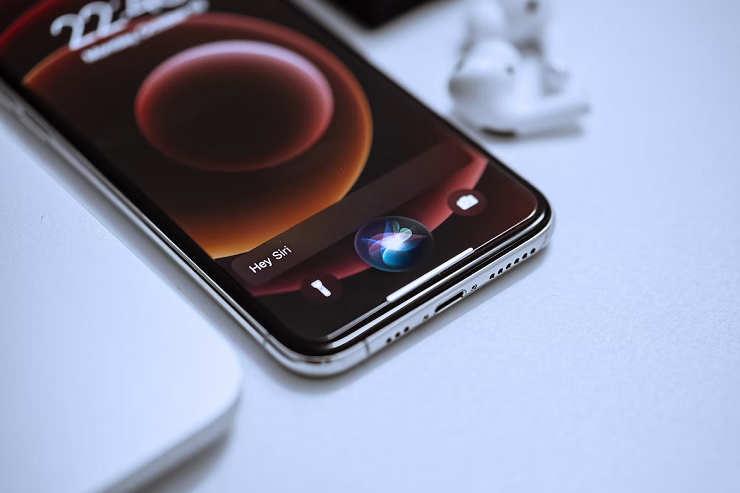
Voice assistants are quickly becoming a popular way to control our homes, cars, and work. Amazon Alexa is one of the leading players in this space, having developed a wealth of features that make it a top choice for many users. But how does Amazon Alexa compare with other voice assistants? This article will compare Alexa to its main competitors and examine what differentiates it. We’ll cover everything from design and features to price points so that you can decide which voice assistant is best for you.
Amazon Alexa
There are many voice assistants on the market today, but Amazon’s Alexa is one of the most popular. In this article, we’ll compare Alexa with other top voice assistants to see how it stacks up.
One of the main reasons people choose Alexa is because it integrates well with Amazon’s other products and services. For example, if you have an Amazon Echo device, you can control your lights, play music, and even order products from Amazon. This convenience factor is one of the key reasons people prefer Alexa over other voice assistants.
Another strength of Alexa is its skills. Skills are like apps for voice assistants, and they allow you to do things like play games, get news updates, or check the weather. There are thousands of skills available for Alexa, so there’s something for everyone. And if you can’t find a skill that does what you want, you can always create your own using the Alexa Skill Kit.
Finally, Alexa is constantly getting better thanks to machine learning. Amazon is continuously collecting data on how people use Alexa and using that data to improve the assistant. This means that, over time, Alexa will better understand your needs and provide helpful information and results. So overall, Alexa has a lot going for it. If you’re looking for a convenient way to control your smart home or want a voice assistant that can do many different things, Alexa is a great choice.

1. Google Assistant
Google Assistant is a voice assistant developed by Google and designed to be an extension of the Google search engine. The assistant can be accessed on Android and iOS devices and the Google Home smart speaker.
Google Assistant is powered by artificial intelligence and can perform various tasks, such as answering questions, setting alarms, and controlling smart home devices. The assistant can also be used to make phone calls and send text messages.
One of the key features of Google Assistant is its ability to integrate with other Google products and services. This means that users can get information from their email, calendar, and other Google apps without leaving the app they are currently using.
Another key feature of Google Assistant is its ability to understand natural language. This means that users can ask questions in a natural way rather than having to use specific commands. Overall, Google Assistant is a powerful voice assistant that offers many features and integrations.
2. Apple Siri
When it comes to voice assistants, there are a few options to choose from. One of the most popular is Apple Siri. Siri is a voice assistant that is built into Apple devices. It can perform tasks such as setting alarms, sending messages, and making phone calls. Siri can also be used to answer questions and provide information.
Alexa, another popular voice assistant, is provided by Amazon. While Siri and Alexa can perform many of the same tasks, some differences exist. For example, Siri can control devices such as Apple TV and HomeKit-enabled devices. Alexa cannot be used to manage these types of devices. Another difference is that Siri can recognize different accents and dialects, while Alexa cannot. This can be important if you live in an area with a lot of diversity.
Ultimately, the choice of voice assistant will depend on your needs and preferences. If you use Apple products, then Siri is likely the best choice. Alexa may be a better option if you prefer an Amazon device.

3. Microsoft Cortana
Microsoft Cortana is a voice assistant that comes pre-installed on Windows 10 devices. It can be used to perform a variety of tasks, including setting alarms, adding calendar events, and sending emails. Cortana can also answer questions about the weather and provide turn-by-turn directions.
One of the unique features of Cortana is that it can learn your preferences over time and provide personalized recommendations. For example, if you often search for restaurants near your office, Cortana will suggest restaurant options when you open the Maps app.
Like other voice assistants, Cortana can control smart home devices such as lights and thermostats. You can also use Cortana to play music from various streaming services like Spotify and Pandora. If you’re looking for a voice assistant that integrates well with Windows 10, Cortana is a great option. However, it has fewer features than other voice assistants on the market.
Comparison of Features:
When it comes to voice assistants, there are a lot of options out there. But which one is the best? In this article, we’ll be comparing smart assistants like Amazon Alexa with other popular voice assistants to see how they stack up. Regarding features, Amazon Alexa has a lot to offer. Here are some of the most notable features that set Alexa apart from the competition:
- Alexa can control a wide range of smart home devices. From lights and locks to thermostats and TVs, Alexa can help you automate your home and make your life easier.
- Alexa can answer questions, give you information on the news and weather, play music, and more. If you need to know something, Alexa can help you.
- Alexa is always getting more intelligent thanks to regular updates from Amazon. This means that she’s constantly learning new skills and becoming more valuable over time.
- On the other hand, other voice assistants have unique features that make them stand out. For example, Google Assistant can understand multiple languages, making it ideal for multi-lingual households.
- Siri is great at understanding natural language, so you don’t need to worry about speaking with precise commands.
- Microsoft Cortana is particularly good at calendar management and setting reminders.
To summarize, Amazon Alexa has many great features that make her an excellent choice for controlling smart home devices and getting information on demand. However, she also has plenty of competition from other voice assistants that might be better suited to specific tasks or preferences.

Privacy Concerns:
When it comes to voice assistants, privacy is always a concern. Amazon Alexa is no different. There have been several instances where Alexa has been caught recording conversations without permission. While Amazon says these recordings are used to improve the user experience, it’s still a significant privacy concern.
Other voice assistants, such as Google Assistant and Siri, have also been known to record conversations without permission. However, both Google and Apple have taken steps to address this issue and have made it easier for users to delete these recordings.
Overall, Amazon Alexa is no more or less private than other voice assistants. If you’re concerned about privacy, you should take steps to delete your recordings frequently and be aware of what information you’re sharing with Amazon (or any other company).
In addition, make sure that you are taking the necessary steps to protect your device from malicious attacks, such as changing your passwords regularly and keeping your software up to date.
What Is The Future Of Voice Assistants?
The future of voice assistants is shrouded in potential but fraught with uncertainty. Nevertheless, the technology is advancing at a breakneck pace and shows no signs of slowing down. To stay ahead of the curve, it is essential to understand where voice assistants are headed and what new capabilities they will develop.
- One area of development for voice assistants is their ability to understand human emotions better. Currently, voice assistants can detect some feelings, such as happiness, anger, and sadness. However, they are not yet able to accurately interpret more complex emotions. This is an area of active research, and voice assistants will likely continue to improve in their emotional intelligence over time.
- Another area of improvement for voice assistants is their natural language processing abilities. Currently, voice assistants can understand basic commands and requests. However, they often need help with more complicated questions or requests. This is where artificial intelligence (AI) research is ongoing, and voice assistants will likely continue to better understand natural language over time.

- A third area where voice assistants are expected to improve is their ability to personalize responses. Currently, most voice assistants provide generic answers to questions or requests. However, there is a growing trend towards personalization, whereby voice assistants tailor their responses based on user preferences or data collected about the user.
The increasing availability of user data and the advances in AI technology drive this trend. It is expected that voice assistants will improve at personalizing responses over time.
Conclusion
Overall, Amazon Alexa is the most popular voice assistant on the market. It has a wide range of capabilities and constantly improves with new features. However, depending on your needs, other options, such as Apple’s Siri or Google Home, might be better suited to you. Consider what kind of tasks you want your voice assistant to perform before deciding which one is right for you.
